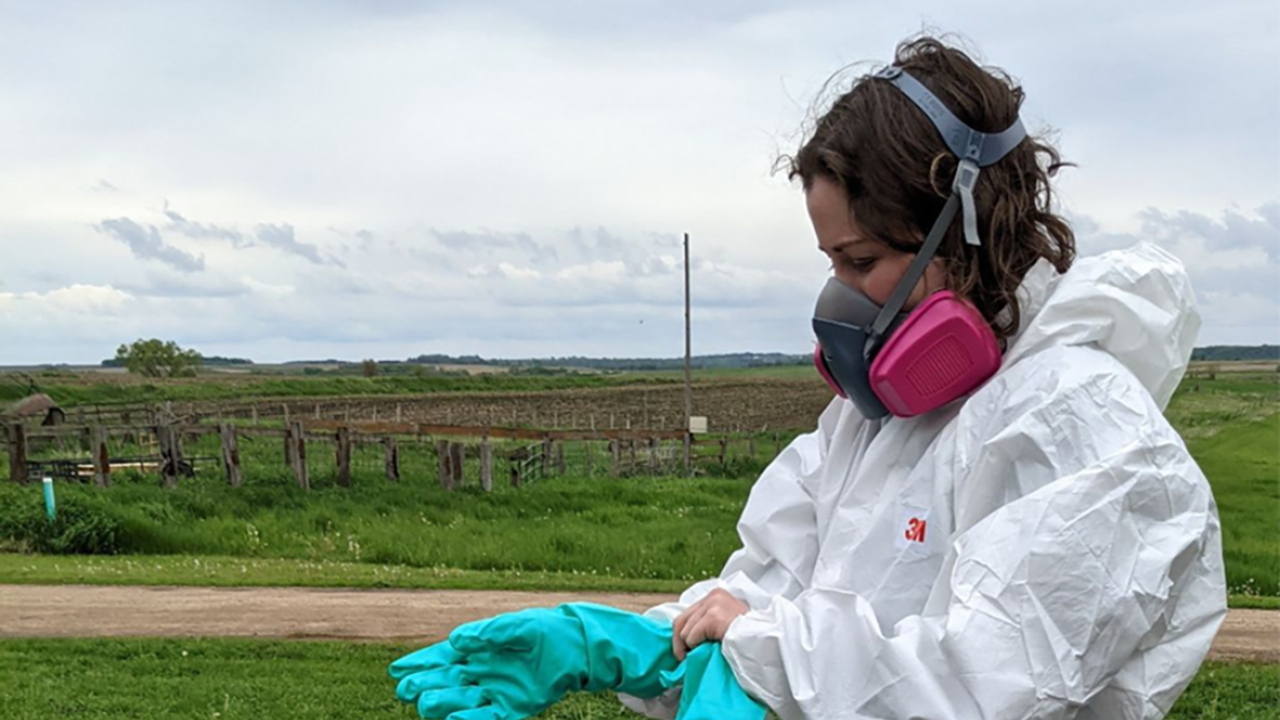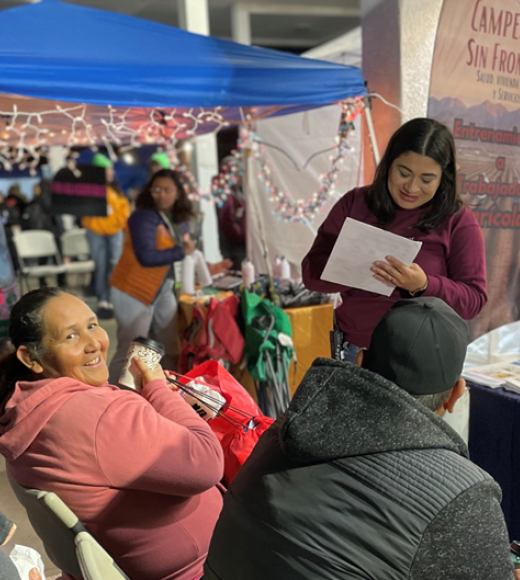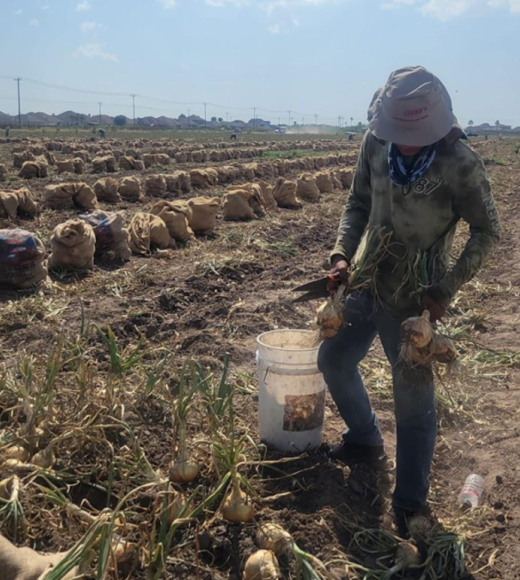
Bilingual Pesticide Safety Training Promotes Welfare of Farmworkers
UC Davis CPE’s Pesticide Educational Resources Collaborative provides programming support, resources and funding to ag projects across the U.S.
On a normal day, Yuma, Arizona is a quiet Southwestern town.
But on December 1, 2023, it came alive as thousands of Yuma’s farmworkers (including some who walked from Mexico) were honored during Dia del Campesino, an annual festival celebrating farmers. Mariachi music and the smell of warm tamales filled the air, while vital pesticide-safety training resources—made possible by the Pesticide Educational Resource Collaborative (PERC) at UC Davis Continuing and Professional Education (CPE)—were handed out.
Yuma’s 230,000 acres of ag land contribute more than 3 billion dollars annually in economic return and are responsible for 90 percent of all leafy vegetables grown in the U.S. from November through March, making Yuma, and cities like it, critical to America. PERC is helping ensure the welfare of vital farmworkers who make this industry possible.
Advancing Worker Safety

A collaboration between UC Davis CPE and Oregon State University, PERC’s primary goal is to advance the safe use of pesticides and working safely where pesticides are used. PERC supports and funds a variety of non-profit Agricultural Community-Based Projects (AgCBPs) to serve some of our most underserved communities, including farmworkers, agricultural pesticide handlers and their communities. UC Davis CPE facilitates programming and disbursement of subawards with direction from PERC’s Advisory Board, composed of expert pesticide educators, pesticide certification authorities and farmworker advocates from across the United States.
PERC advocates for and supports issues around worker safety, bridging linguistic gaps and meeting community cultural and socio-economic needs. The volume of applications that PERC receives is an indication of the need for these communities to access education around safe pesticide use practices and regulations. As a federal project, PERC is fulfilling these needs at the national, regional and local community level in ways that have not been done before.
"UC Davis stands as a pivotal bridge, seamlessly connecting the dots between federal legislation, the Environmental Protection Agency and local agricultural nonprofits,” says PERC director Suzanne Forsyth. “With the protection of human health and the environment at the forefront of every step, this alliance ensures that underrepresented communities remain safeguarded from the potential hazards of pesticide exposure. This approach exemplifies a harmonious balance of policy, science and grassroots involvement, all while championing the principles of inclusivity and fairness."
A Vital Resource for Underserved Communities
In Yuma, where farmworkers gathered for the Dia del Campesino celebration, farmworkers had access to health clinics, volunteers distributed blankets to those who sleep in the streets awaiting early-morning buses to take them to the fields, and classes and training materials were provided to help farmworkers learn how to protect themselves from pesticides.

These pesticide educational resources are part of a $100,000 two-year grant Campesinos Sin Fronteras (the event organizer) received for the project Campesinos Pesticide Safety Training and Education Program, which aims to provide training to farmworkers, create new resources and develop radio messages to safeguard people from the harmful effects of pesticides. The project is one of six AgCBPs funded by the U.S. Environmental Protection Agency, as awarded through PERC.
Campesinos Sin Fronteras’ mission is to promote self-sustainability to farmworkers and low- to moderate-income individuals by providing and facilitating access to health, behavioral health, social services, housing rehabilitation, counseling, education and workforce development. “Our vision and strength are advocating for long-term strategies and solutions that address the priorities identified by community members in a culturally and linguistically competent manner,” said executive director Emma Torres. “By partnering with PERC, we are able to advance that vision.” The funding from PERC allowed them to develop radio public service announcements and several fotonovelas to educate farmworkers.
The Far-Reaching Impact of PERC
In addition to Campesinos Sin Fronteras, PERC is currently working with five other agricultural community-based nonprofit organizations who are administering their own projects at the local levels.
- The Farmworker Association of Florida was awarded a $100,000 one-year grant to inspire and enable the farmworker community to reduce their chronic exposure to agricultural pesticides through short virtual trainings reinforcing key Worker Protection Standard messaging.
- Toxic Free North Carolina was awarded a $50,000 two-year grant to increase awareness of the federal Worker Protection Standard and pesticide safety among migrant and seasonal farmworkers, the agricultural community and adjacent stakeholders in North Carolina, ensuring that existing protections are implemented more broadly across the state.
- Ag Health and Safety Alliance was awarded a $100,000 two-year grant for respirator fit testing in Mississippi. The project encompasses an enriched curriculum, focusing on safe pesticide handling and personal protective equipment usage.
- National Center for Farmworker Health was awarded a $100,000 two-year grant for its project on increasing pesticide safety knowledge among farmworkers from Mexico who speak languages other than Spanish. The initiative is particularly tailored for Mesoamerican Indigenous farmworkers in Texas' Rio Grande Valley counties whose indigenous languages are only spoken and not written, underscoring the challenge in communicating written safety materials to these groups.
- Surry Medical Ministries was awarded a $96,186 two-year grant to mitigate pesticide exposure health risks for migrant and seasonal farmworkers in western North Carolina and will educate farmworkers across five countries.
To learn more about the work PERC does, visit the PERC website at pesticideresources.org.
